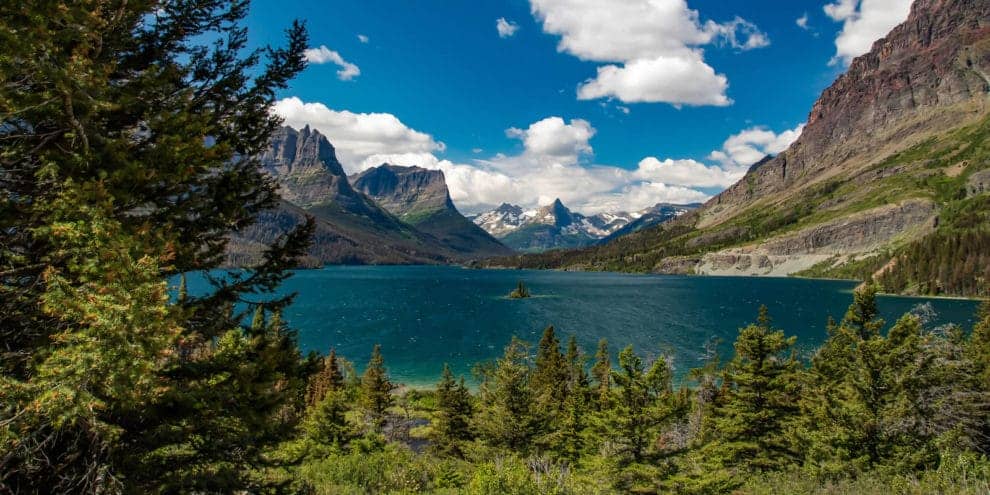According to October’s LANDTHINK Pulse results, an overwhelming 84.5% of respondents believe that owning land adjoining a national forest, park or wildlife refuge is a definite advantage. Owning property adjacent to state or federal land certainly has pros and cons. Advantages would include assurance that the land next door would not be sold to developers, and your view would remain the same as the day you purchased the property. If you’re a hunter, it could mean access to an abundant, managed wildlife population. For these reasons, the value of your property would likely increase, as buyers view these factors as intrinsic value. Some of the disadvantages might include future risk of condemnation, or eminent domain. Additionally, if a property dispute should ever arise, a landowner would be up against a bevy of real estate lawyers and cash. Depending on its use, state or federal land might experience high traffic, by both the park guests and employees.
Last month, the October Pulse asked: In your opinion, is owning land that adjoins a national forest, park or wildlife refuge an advantage or disadvantage? Our informal online survey revealed that 84.5% of our audience believed it was an Advantage, while just 15.6% said they thought owning land that adjoins a national forest, park or wildlife refuge was a Disadvantage.
It was the general consensus of the LANDTHINK audience that owning land adjoining a national forest, park or wildlife refuge is beneficial. The pros outweigh the cons; essentially it would be like owning hundreds of acres in addition to your own land, offering solitude, plenty of wildlife, and unobstructed views.
Here are the final results:

- 84.5% said it would be an Advantage to own land that adjoined a national forest, park or wildlife refuge
- 15.6% said it would be a Disadvantage to own land that adjoined a national forest, park or wildlife refuge
Congratulations to Al Jennings, winner of the $50 Amazon gift card after answering the October Pulse question! Al is Principal Broker at Mossy Oak Properties Premier Land Company in Germantown, Tennessee.
Thank you to everyone who participated and shared the Pulse with friends and connections in the land industry.
LANDTHINK is seeking sponsors for the December LANDTHINK Pulse and months thereafter. Sponsorship of the Pulse is an excellent opportunity for land industry businesses and professionals to receive significant exposure by leveraging our entire network of web and social media sites. Pulse sponsorships are offered on a first come first serve basis and are subject to certain limitations. If your business would be interested in sponsoring next month’s December Pulse question, please contact us soon.
Do you have a suggestion for next month’s Pulse question? Submit your question here and we might choose yours!
The Enhanced Tax Incentive for Conservation Easements is scheduled to expire on December 31, 2013. Should this federal tax incentive be continued? Tell us what you think! Click here to answer the November Pulse question. All respondents will be automatically entered to win a $50 Amazon gift card!
This content may not be used or reproduced in any manner whatsoever, in part or in whole, without written permission of LANDTHINK. Use of this content without permission is a violation of federal copyright law. The articles, posts, comments, opinions and information provided by LANDTHINK are for informational and research purposes only and DOES NOT substitute or coincide with the advice of an attorney, accountant, real estate broker or any other licensed real estate professional. LANDTHINK strongly advises visitors and readers to seek their own professional guidance and advice related to buying, investing in or selling real estate.










Your view would never change? The management prescription for much of federally owned land is management by fire. If there isn’t a timber management prescription you can assume that the Plan is to allow fires to burn in Inventoried Roadless Areas, National Parks, National Monuments, etc. Your view will change. Also, they won’t be able to stop the fires at your property line and insect infestations will spread from the burned areas into adjacent areas very quickly. With more and more roads and trails being removed from the system, you will have more people trying to play on the remaining routes. Insurance rates are higher if you can get insurance. A lot of people who don’t own land adjacent to federal lands don’t understand all the problems those of us who do face. It gets worse every year.
Depending on the socioeconomics surrounding the public land one could have concern that in times of prolonged significant economic challenge that public lands might/will experience an increase in squatting activity on public lands. In this unlikely but possible scenario, things could be exacerbated should the squatters be given some type of semi-permanent or permanent personal claim to such land.
Example: happy homeowner with 50 acres adjacent to a national land in the state of Washington finds squatters on federal land adjacent to the homeowner property. Law is called, effectively does nothing. Then ex-happy homeowner has to decide if stay and fight the hoards in the tent city adjacent to his property, or leave, likely at a loss in sale because of the circumstances.
The above issue is playing out in urban areas right now. It is only logical that rural is next.